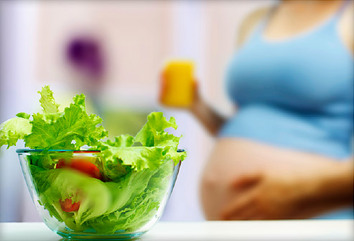 In America, pregnant women receive a great deal of advice: Eat fish, but only the right kind and not too much. Don’t smoke. Don’t drink alcohol. Don’t take certain over-the-counter medicines. The implication is that by taking these and other steps, a pregnant woman can ensure that her baby has the best possible start in life. But just how much can a pregnant woman do? How much responsibility does she bear for her uterine environment? In a commentary recently published in the journal Nature, Dr. Matthew Gillman and colleagues discuss the possibility that pregnant women may be unfairly blamed for poor health outcomes in their children, or even their grandchildren, due to factors – many beyond their control – that they experienced during their pregnancies. They illustrated their point through headlines: “Mother’s diet during pregnancy alters baby’s DNA.” “Grandma’s experiences leave a mark on your genes.” “Why you should worry about Grandma’s eating habits.” Each of these articles covered research on epigenetics, the study of changes to the structure and activity of genes caused by environmental influences like diet, pollution and stress. Epigenetic changes are not mutations; the underlying sequence of the gene remains the same. But at least some epigenetic changes are heritable, meaning that they can be passed down from mother to child. Researchers have linked epigenetic changes to increased risk for obesity, type 2 diabetes, and other health conditions.
Epigenetics is a relatively new field, and many widely publicized studies have examined animals, not humans. That hasn’t stopped journalists from inferring that study results in rats will be replicated in humans, with the resulting impression that negative outcomes might be the mother’s fault. Gillman and colleagues argue that such media coverage is part of a long history of blaming women for their children’s poor health. Early medical texts claimed that a woman’s diet, nerves, or the company she kept during pregnancy could result in her child having birth deformities, mental defects, or even criminal tendencies. Later physicians blamed cold, uncaring “refrigerator mothers” for their children’s autism. Most recently, our society still stigmatizes women who consume even a small amount of alcohol while pregnant, despite studies that have failed to find adverse effects in the children of moderate drinkers. This is not to diminish women’s control over their bodies, during pregnancy or at any other time. Maintaining healthy behaviors during pregnancy does matter. However, we need to be careful about assigning blame. Not all pregnant women have the time and resources to “double-down on healthful eating if you want to avoid setting up your unborn child for a lifetime of wrestling with obesity,” as one National Public Radio story advised. And some maternal experiences while pregnant are unavoidable. For example, it’s hard to see how we can blame women who were unfortunate enough to witness the 9/11 terrorist attacks while pregnant. Ultimately, Gillman and colleagues argue that decisions made while pregnant are just some of many things – including the father’s genetic contribution, as well as social, economic, and environmental factors during childhood – that can influence a child’s health. Maybe this will take some of the burden of blame off of pregnant women.
0 Comments
Your comment will be posted after it is approved.
Leave a Reply. |
©2017 WeighingInBlog. All rights reserved. 401 Park Drive, Boston, MA




 RSS Feed
RSS Feed

